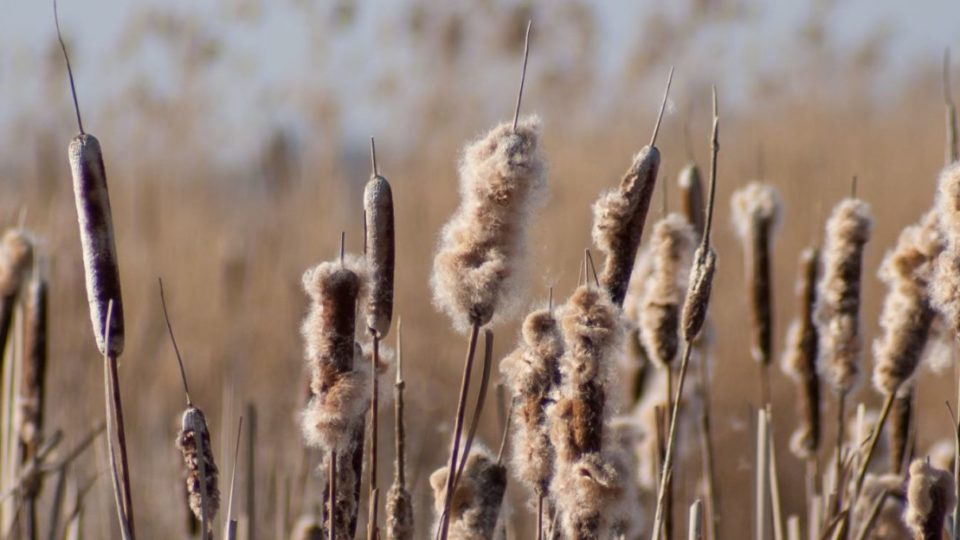On 26th October 2022, Horizon 2020 project WaterLANDS and Interreg North-West Europe project Care-Peat hosted a joint event in Brussels to discuss peatland policy recommendations developed with stakeholders and to advocate for stronger peatland targets in the proposal for the new EU Nature Restoration Law. The event, attended by MEPs, Directorate-Generals and other policy stakeholders, called for a range of new measures, including the significant increase of peatland restoration targets for 2050, and the mandatory monitoring of restoration.
While the event organisers welcome the proposed Nature Restoration Law as a positive step, including the binding targets for EU countries to restore peatland by 2030, 2040 and 2050, and the recognition of alternative modes of use for rewetted land, stronger peatland targets were advocated for, including:
- The restoration of peatland must include rewetting.
- Significant improvement of peatland restoration targets for 2050 in line with the Paris Agreement.
- Target all non-residential land uses of drained peatland for restoration.
- Mandatory monitoring of peatland restoration.
See our briefing jointly produced with Greifswald Mire Centre on how to achieve greater ambition for peatlands in the EU Nature Restoration Law: https://europe.wetlands.org/publications/higher-ambition-for-peatlands-in-the-eu-nature-restoration-law-proposal/
In her keynote speech, MEP Jutta Paulus called for the improvement of the Nature Restoration Law, saying “Peatlands are some of our most valuable ecosystems, covering only 3% of Earth’s land area but storing more than 600 gigatonnes of the planet’s soil carbon, which approximately corresponds to the amount of carbon emitted by Europe since 1750. The degradation of peatlands has caused them to become carbon sources rather than sinks. The proposal for the Nature Restoration Law is Europe’s chance to champion peatlands in policy, but we must act now to strengthen the targets for a stronger Law for nature.”
The European Commission’s proposal for the EU Nature Restoration Law was presented on June 22, 2022, and sets a precedent as Europe’s first legally binding requirement to protect nature. The proposed draft law covers a range of terrestrial and maritime ecosystems, habitats and species, including rivers, forests, grasslands and peatlands, and sets specific targets for restoring these ecosystems.
If sufficiently ambitious, the proposal, due to be adopted as law by 2023, holds promise to protect habitats, reverse biodiversity loss, ensure a just transition, and enable climate mitigation and action in line with the stated objectives of the EU Green Deal, the Paris Agreement, and the UN Sustainable Development Goals.
“For Peat’s Sake”, Strengthening Peatlands Targets in the EU Nature Restoration Law” included a technical peatland seminar followed by a high-level policy event hosted by MEP Jutta Paulus. It emphasised the crucial role of peatlands for biodiversity, carbon storage, water cycles and climate resilience throughout Europe under the Nature Restoration Law.
The event showcased how the WaterLANDS and Care-Peat projects will create a legacy for the upscaling of wetland restoration by contributing to European policy and the implementation of the Nature Restoration Law, while emphasising the necessity of improved targets for peatland restoration.
Peatlands are under threat, with over half of their total coverage in the EU now degraded due to human activity. The bulk of this degradation occurs from the draining of peatlands, which releases large quantities of carbon in the form of greenhouse gas, contributing to climate change. The EU is the second largest global emitter of greenhouse gases from drained peatlands.
Representatives of WaterLANDS and Care-Peat look forward to further work and discussions on the draft law, which will take place in the coming months.
Notes for editors
Contact details: Laoise Dillon, ERINN Innovation, [email protected]
Project information
WaterLANDS (Water-based solutions for carbon storage, people and wilderness) is a €23.6 million, 5-year EU-funded project that will restore wetland sites across Europe and lay the foundations for scalable protection across much wider areas. The project will undertake hands-on restoration of specific wetland sites, covering an initial 10,500 hectares, and create best practice models that can be applied to wetland restoration at other sites. By engaging with local communities, policymakers and other stakeholders, the project will ensure that wetland restoration results not only in environmental gains, but also social and economic benefits for the communities involved. Identifying viable investible propositions for wetlands will also help establish long-term financial support for scalability.
Find out more about the project: https://waterlands.eu
This project has received funding from the European Union’s Horizon 2020 research and innovation programme under grant agreement No 101036484 (WaterLANDS). This output reflects the views of the authors and the European Commission is not responsible for any use that may be made of the information contained therein.
Care-Peat is an Interreg North-West Europe (NWE) project with 12 partners working together to reduce carbon emissions and restore the carbon storage capacity of different types of peatlands in North-West Europe. The main partnership consists of seven knowledge institutes and five nature organisations from Belgium, France, Ireland, the Netherlands and the United Kingdom. Together with 7 sub-partners and 41 associated partners, they develop and test new techniques and socio-economic strategies for carbon reduction.
Find out more about the project: Care-Peat – Carbon loss reduction from peatlands: an integrated approach | Interreg NWE (nweurope.eu)

